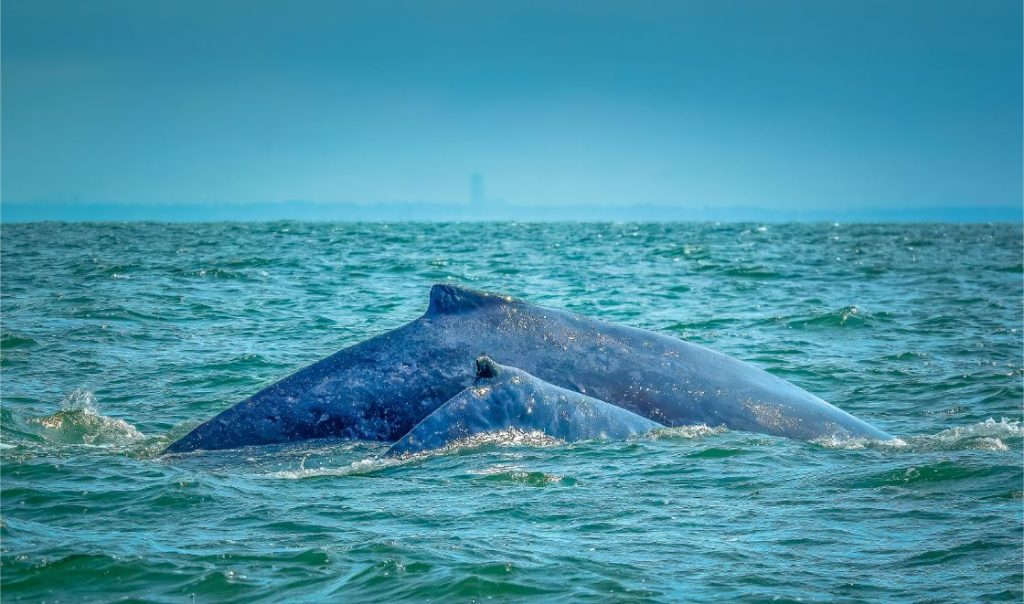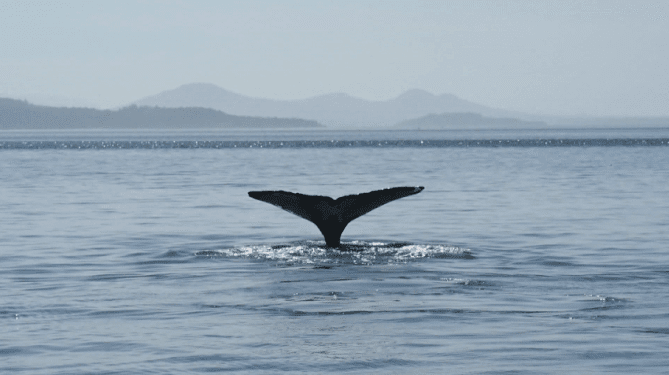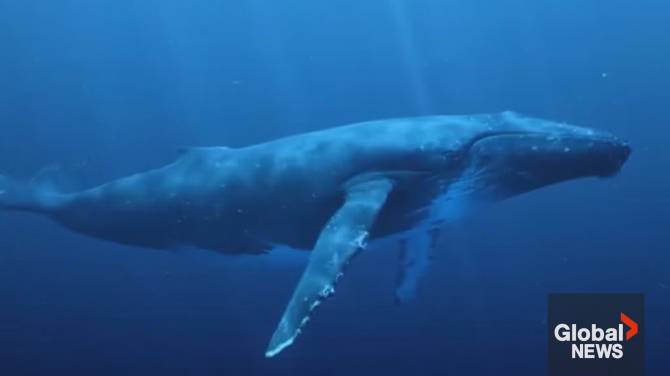In the last twenty years, humpback whale activity has been increasing in B.C. waters, according to researchers.
The increase in activity has been a long time coming, UBC’s Marine Mammal Research Unit director Andrew Trites said.
“Humpback whales were hunted relentlessly for their oil (and) were all removed by whaling at the turn of the last century,” Trites told Global News. “Once they were protected from whaling, the numbers began to increase. And as the populations increased, they began to show up more and more in B.C.”
UBC researchers conducted a first-of-its-kind study on humpback whale entanglements at B.C. fish farms.
The study revealed eight entanglements occurring from 2008 to 2021, at seven fish farms. Five of the entangled whales were rescued, but three died.
The eight entanglements made up less than six percent of all entanglements in B.C. during that time.
Most entanglements take place in the containment net between the fish farms and the ocean, researchers found.
“This study provides hope that there are plans and procedures in place to address entanglements,” said Rhea Storlund, a doctoral student and first author of the study at UBC’s Institute for the Oceans and Fisheries.
All eight entangled whales were relatively young.
“This might be due to their lack of experience and new feeding methods compared to adults,” said Stephen Raverty, an adjunct professor and co-author.
Another aspect of the entanglements was the design of the fish farm facilities.
Overall, the study found that the impact of fish farms on humpback whales was relatively small compared to the 7,000 whales returning to B.C.
“Fish farms are not an inherent issue for humpback whales,” Trites said.
However, the researchers stated that industries, including fishing, which is responsible for 94 percent of all entanglements, need to “take action to reduce the harm to whales.”
The study was published in PLOS One, a peer-reviewed open-access journal from the Public Library of Science.





